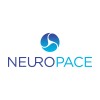
IF-MCT 16:8: Investigating the Influence of Intermittent Fasting With and Without MCTs in Patients...
EpilepsyIntermittent FastingThe objective of the prospective monocentric pilot trial is to investigate the influence of intermittent fasting with or without a once-daily intake with medium chain triglycerides (MCTs) on the frequency of seizures in patients with therapy-refractory epilepsy. The effects of 12 weeks intermittent fasting according to the 16:8 method (IF 16:8) are compared to 12 weeks intermittent fasting with additional intake of exogenous MCTs (IF MCT 16:8) in a within-subject-crossover-design in 28 patients with drug-resistant epilepsy.

Music as an Adjunctive Epileptic Seizure Treatment Option
EpilepsyNeurocognitive DisordersMozart's Sonata for two pianos in D major (K448) has been found to reduce the presence of abnormalities in the electroencephalograms of patients with epilepsy. We will examine the long term effects of listening to the K448 sonata on seizure frequency and cognitive functioning in children with drug resistant epilepsy allocated to either a study group or a control group. Patients' parents will complete a seizure diary for the whole study period, during which antiepileptic drug therapy of the child will remain unchanged. Baseline neuropsychological testing will be performed and a seizure diary will be kept for 3 months. The study group will listen to K448 for 8 continuous minutes every day for 2 months, while those in the control group will listen to control music for the same amount of time. Neuropsychological testing will be repeated at the end of the study period and any change from baseline examined. Seizure frequency during periods of exposure to music will be compared to baseline in both groups. Feedback questionnaires and parent focus groups will be used to gather information around the practicalities of exposure to music, potential problems and suggestions for how future studies might be improved.

Placebo Controlled Study to Assess the Efficacy and Safety of Rapamycin in Drug Resistant Epilepsy...
Tuberous Sclerosis ComplexThe purpose of the RaRE-TS study is to determine safety, tolerability and efficacy of rapamycin versus placebo in a drug resistant epilepsy associated with tuberous sclerosis complex (TSC).

Modified Atkins Diet Versus Topiramate In Children With Epileptic Spasms Refractory To Hormonal...
Epileptic SpasmsFailed Hormonal TherapyThis study has been planned to compare the efficacy and tolerability of topiramate, a commonly used second line agent, with modified Atkins diet in children with epileptic spasms refractory to hormonal treatment, in a randomized open label study.

Study of Interest of Stiripentol and Carbamazepine in the Treatment of Patients With Pharmacoresistant...
Pharmacoresistant Focal EpilepsiesThis is a monocentric, open-label clinical study, presenting a retrospective part and a prospective part, studying the data of patients with drug-resistant focal epilepsies and treated with the combination of stiripentol (Diacomit®) and Carbamazepine.

Sodium-Glucose Cotransporter-2 Inhibitors: A Potential Novel Treatment for Epilepsy
EpilepsyAbout 30% of persons with epilepsy have seizures that do not respond to drugs. The ketogenic diet is an effective treatment option for them, but this high fat diet is strict and difficult to maintain. The properties of gliflozins, which often are used to treat type 2 diabetes, make them a potential replacement for the ketogenic diet. This pilot study will determine whether gliflozins induce ketosis and could be used to treat adults with epilepsy safely.

Clinical Study on the Effect of Improving Sleep Quality on Cognitive Function in Patients With Epilepsy...
Epilepsy,CognitionEpilepsy is one of the common chronic diseases of the central nervous system. 30% to 40% of patients with epilepsy have varying degrees of cognitive impairment, which affects their quality of life. At present, the treatment of cognitive impairment in patients with epilepsy is relatively scarce, and the therapeutic effect is still not ideal. Recent studies have shown that sleep disorder is also an important factor causing cognitive dysfunction, and improving sleep quality has a prospect to become a new way to treat cognitive impairment in patients with epilepsy. The purpose of this study is to observe the relationship between sleep and cognitive function in patients with epilepsy, and to improve the sleep quality of patients with epilepsy, so as to provide new ideas for improving cognitive impairment in patients with epilepsy.

A Study to Evaluate Efficacy and Safety of Perampanel Administered as an Adjunctive Therapy in Pediatric...
Pediatric Epileptic SyndromePartial-onset SeizuresThe purpose of the study is to evaluate the efficacy of perampanel as measured by the 50 percent (%) responder rate during the maintenance period of the core study for seizure frequency in participants with pediatric epileptic syndrome (Cohort 1) and partial-onset seizures (POS) (Cohort 2).

RNS System NAUTILUS Study
EpilepsyIdiopathic Generalized Epilepsy1 moreTo demonstrate that the RNS System for thalamic stimulation is safe and effective as an adjunctive therapy for the reduction of primary generalized seizures in individuals 12 years of age or older who have drug-resistant idiopathic generalized epilepsy.

Evaluation Of Strategies For Improving Ketogenic Diet Compliance
EpilepsyKetogenic Dieting2 moreIn order to increase adherence to ketogenic diet treatment, palatability of meals and diversify the foods offered to patients a ketogenic kitchen will be created. Intervention: Incorporation of culinary workshops and supply of recipes for patients undergoing ketogenic diet treatment at Instituto da Criança - HCFMUSP.
